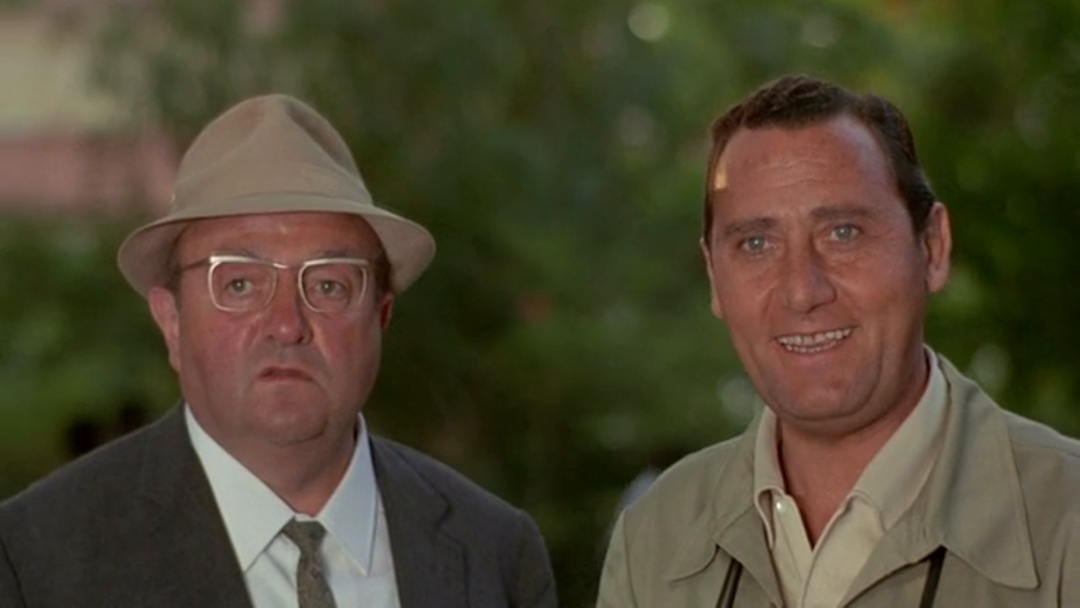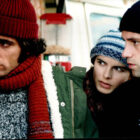Introduction
“Riusciranno i nostri eroi a ritrovare l’amico misteriosamente scomparso in Africa?” is a 1968 Italian comedy film directed by Ettore Scola. This film takes viewers on a wild and humorous journey through Africa as three unlikely companions search for a missing friend. With its blend of adventure and comedy, the film is a delightful exploration of friendship and the human spirit.
Plot Overview
The story centers around Fausto Di Salvio (Alberto Sordi), a wealthy but disillusioned businessman who decides to leave his mundane life in Rome to search for his brother-in-law, Oreste Sabatini (Nino Manfredi), who has disappeared in Africa. Fausto is accompanied by his faithful employee, Ubaldo Palmarini (Bernard Blier), and a local guide, Boudou (Giuseppe Maffioli). Their journey takes them deep into the African continent, where they encounter a series of comedic and challenging situations. As they venture through the wilderness, they face language barriers, cultural differences, and their own personal conflicts, all while trying to unravel the mystery of Oreste’s disappearance.
Themes and Characters
The film explores themes of adventure, self-discovery, and the absurdity of modern life. Alberto Sordi’s Fausto is a character driven by a need for change and meaning, representing the existential crises faced by many. Nino Manfredi’s Oreste, though absent for much of the film, looms large as the enigmatic figure whose disappearance sparks the journey. Bernard Blier as Ubaldo provides a perfect foil to Fausto, embodying loyalty and pragmatism amidst the chaos. The interactions between these characters highlight the humor and challenges of their quest, making the film both a comedy and a commentary on human nature.
Direction and Cinematography
Ettore Scola’s direction masterfully balances humor with moments of introspection, creating a film that is both entertaining and thought-provoking. The cinematography captures the vast and varied landscapes of Africa, enhancing the sense of adventure and the characters’ growing sense of wonder and frustration. The visual storytelling complements the comedic elements, with well-framed shots and dynamic sequences that keep the audience engaged.
An Interesting Anecdote
A notable anecdote from the film’s production involves Alberto Sordi’s improvisational skills. During the filming of a scene where Fausto attempts to communicate with locals using exaggerated gestures, Sordi improvised much of his performance, leading to genuine reactions from the non-professional actors he was interacting with. This spontaneity added an authentic and hilarious touch to the scene, showcasing Sordi’s comedic genius and ability to adapt to unexpected situations. The scene became one of the most memorable parts of the film, highlighting the cultural clashes and misunderstandings that permeate the story.
Reception and Legacy
“Riusciranno i nostri eroi” was a critical and commercial success upon its release, praised for its witty script, strong performances, and Scola’s direction. The film’s unique blend of adventure and comedy resonated with audiences, making it a beloved classic in Italian cinema. Its exploration of themes like self-discovery and the absurdity of modern life continues to be relevant, ensuring its enduring popularity.
Conclusion
“Riusciranno i nostri eroi a ritrovare l’amico misteriosamente scomparso in Africa?” remains a delightful and insightful film, capturing the essence of a comedic adventure while offering deeper reflections on life and human connections. Ettore Scola’s direction and the stellar performances of the cast make it a timeless piece that continues to entertain and inspire audiences. The film stands as a testament to the enduring appeal of well-crafted stories that blend humor with heart.§
Watch the movie on Movieitaly+
Read more articles here!






